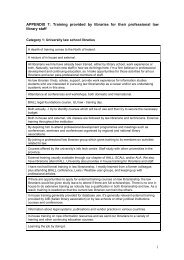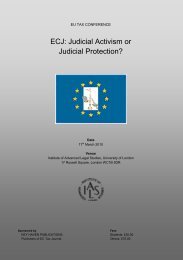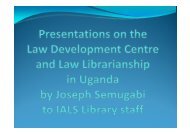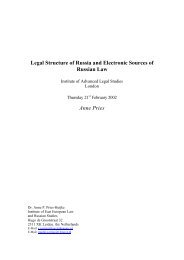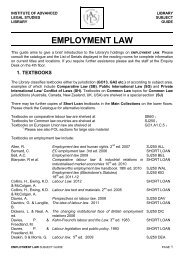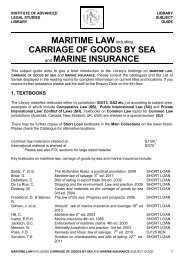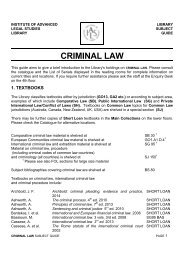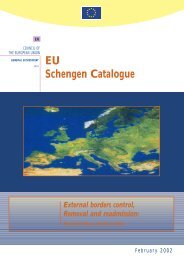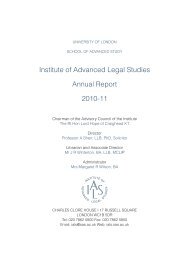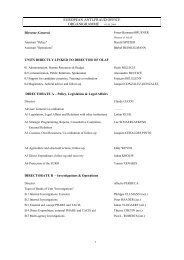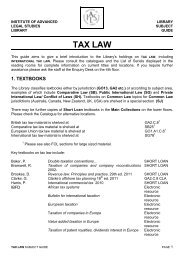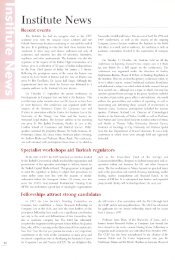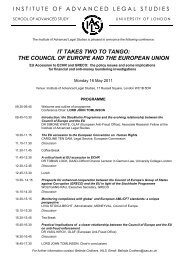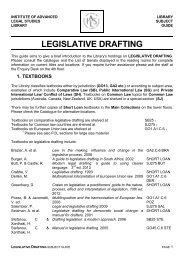a thesis - Institute of Advanced Legal Studies
a thesis - Institute of Advanced Legal Studies
a thesis - Institute of Advanced Legal Studies
Create successful ePaper yourself
Turn your PDF publications into a flip-book with our unique Google optimized e-Paper software.
12 TRUSTS IN GENEEAL.<br />
CHAPTER II.—CLASSIFICATION OF TRUSTS.<br />
EVERY trust is either—<br />
(1) Express, or<br />
(2) Implied.<br />
An express trust is one which is created by words<br />
indicating an intention to create a trust.<br />
An implied trust is one which is not created by words<br />
indicating an intention to create a trust, but by implication<br />
<strong>of</strong> law.<br />
" All trusts," said Lord Nottingham in the case <strong>of</strong> Cook<br />
v. Fountain (1676, 3 Swanst. at p. 591), "are either first express<br />
trusts which are raised and created by act <strong>of</strong> the parties, or implied<br />
trusts which are raised or created by act or construction <strong>of</strong> law."<br />
This classification certainly marks a fundamental distinction<br />
between the kinds <strong>of</strong> trusts. It corresponds with the distinction<br />
drawn by the Statute <strong>of</strong> Frauds, enacted only a few years later,<br />
between " declarations " <strong>of</strong> trusts <strong>of</strong> land and conveyances <strong>of</strong> land<br />
" by which a trust or confidence shall or may arise or result by<br />
the implication or construction <strong>of</strong> law," and it has been substantially<br />
adopted by most writers on the subject since, though<br />
there is a good deal <strong>of</strong> variation in the language used to denote the<br />
distinction.<br />
Mr. Justice Story, for example, classifies trusts as express trusts<br />
and implied trusts, the latter comprehending all those trusts which<br />
are called constructive and resulting trusts. (Equity Juris. 2nd<br />
(Eng.) ed. § 980.) And the same classification is given in the<br />
notes to the case <strong>of</strong> Keech v. Sandford in White and Tudor's<br />
Leading Cases in Equity (7th ed. vol. ii. 694).<br />
Mr. Lewin (Trusts, 10th ed. 16, 18), it is true, begins by<br />
dividing them into simple and special—the former being those in<br />
which property is vested in one person in trust for another, but the<br />
nature <strong>of</strong> the trust not being prescribed by the settlor is left to the



